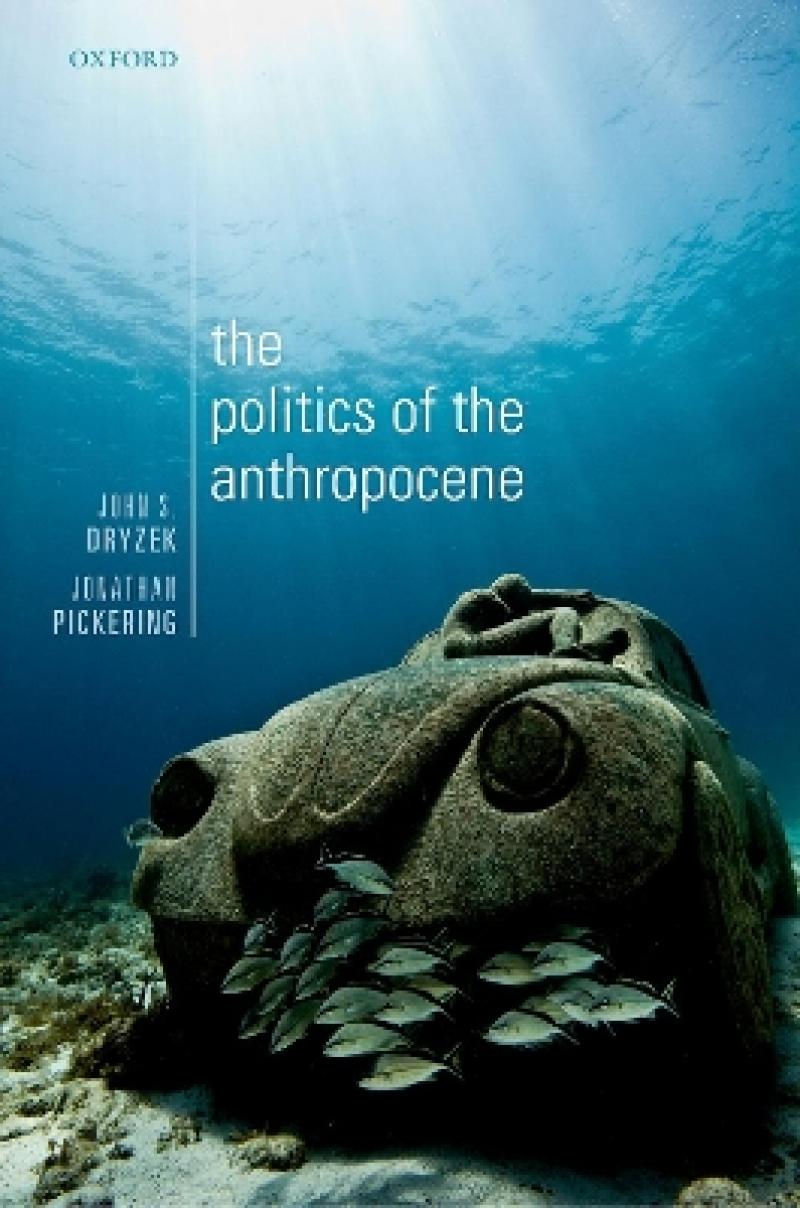The Politics of the Anthropocene is a sophisticated yet accessible treatment of how human institutions, practices, and principles need to be re-thought in response to the challenges of the Anthropocene, the emerging epoch of human-induced instability in the Earth system and its life-support capacities. However, the world remains stuck with practices and modes of thinking that were developed in the Holocene - the epoch of around 12,000 years of unusual stability in the Earth system, toward the end of which modern institutions such as states and capitalist markets arose. These institutions persist despite their potentially catastrophic failure to respond to the challenges of the Anthropocene, foremost among them a rapidly changing climate and accelerating biodiversity loss. The pathological trajectories of these institutions need to be disrupted by advancing ecological reflexivity: the capacity of structures, systems, and sets of ideas to question their own core commitments, and if necessary change themselves, while listening and responding effectively to signals from the Earth system.
This book envisages a world in which humans are no longer estranged from the Earth system but engage with it in a more productive relationship. We can still pursue democracy, social justice, and sustainability - but not as before. In future, all politics should be first and foremost a politics of the Anthropocene. The arguments are developed in the context of issues such as climate change, biodiversity, and global efforts to address sustainability.
Les mer
This is a book about how politics, government - and much else - needs to change in response to the transition from the Holocene to the Anthropocene, the emerging epoch of human-induced instability in the Earth system and its life-support capacities.
Les mer
1: Anthropocene: The Good, the Bad, and the Inescapable
2: Governance in the Holocene
3: Governance in the Anthropocene
4: Planetary Justice
5: Sustainability
6: Who Will Form the Anthropocene?
7: Democratic Anthropocene
8: Conclusion: A Practical Politics of the Anthropocene
Les mer
The book is persuasive and beautifull written, bringing forth a realistic and optimistic account of how humanscan reorganize themselves to better govern in the emerging epochPerhaps most importantly, the book offers hope that human reason and communication with one another and with the Earth system can rise to the challenges of the Anthropocene.
Les mer
Winner of the 2019 Clay Morgan Award Committee for Best Book in Environmental Political Theory
The most sophisticated treatment of the political implications of the Anthropocene to date
Shows how and why dominant institutions such as states and governments became unfit for purpose
Multi-disciplinary in its approach, from political science, international relations, philosophy, environmental studies, law and related fields
Les mer
John S. Dryzek is Australian Research Council Laureate Fellow and Centenary Professor in the Centre for Deliberative Democracy and Global Governance at the Institute for Governance and Policy Analysis, University of Canberra. He is best known for his contributions in democratic theory and practice and environmental politics. He is co-editor of The Oxford Handbook of Deliberative Democracy (2018) and The Oxford Handbook of Climate Change and
Society (2011), and the author of many books, including The Politics of the Earth (3rd edition, Oxford University Press, 2013). Jonathan Pickering is a Postdoctoral Fellow in the Centre for Deliberative Democracy and
Global Governance at the Institute for Governance and Policy Analysis, University of Canberra. His research focuses on global environmental governance, climate ethics and policy, and deliberative democracy. His research has been published in a range of journals including Climate Policy, Ecological Economics, Global Environmental Politics, International Environmental Agreements, and World Development.
Les mer
The most sophisticated treatment of the political implications of the Anthropocene to date
Shows how and why dominant institutions such as states and governments became unfit for purpose
Multi-disciplinary in its approach, from political science, international relations, philosophy, environmental studies, law and related fields
Les mer
Produktdetaljer
ISBN
9780198809623
Publisert
2018
Utgiver
Vendor
Oxford University Press
Vekt
320 gr
Høyde
234 mm
Bredde
157 mm
Dybde
12 mm
Aldersnivå
P, 06
Språk
Product language
Engelsk
Format
Product format
Heftet
Antall sider
208
